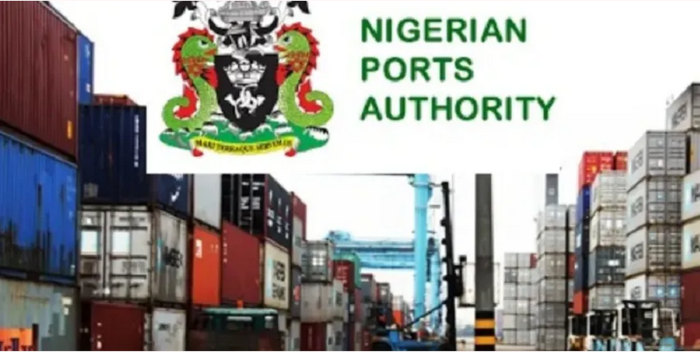NPA Counters Corruption Claims, Reaffirms commitment to Transparency, Ports Modernisation

In a strong rebuttal aimed at quelling growing media speculation, the Nigerian Ports Authority (NPA) has dismissed recent allegations of multi-billion-naira procurement fraud, asserting that its operations remain compliant with federal guidelines and international best practices.
The defence came through a detailed statement issued on Sunday by the General Manager, Corporate and Strategic Communications, Ikechukwu Onyemekara, following online reports that accused the NPA of financial impropriety in contract awards, particularly relating to emergency dredging projects and marine equipment procurement.
NPA Procurement Under Scrutiny: The Facts and the Framework
At the heart of the allegations is a claim that the NPA misapplied funds and breached due process in the award of contracts for emergency dredging at the Warri Escravos Channel and procurement of marine crafts vital for oil and gas operations. But the Authority insists that all such contracts were awarded under the emergency provisions of the Public Procurement Act 2007 — a legally permissible route invoked when national security and critical economic infrastructure are at stake.
“The marine craft procurement process was lawfully executed in response to urgent national energy security needs,” Onyemekara stated, clarifying that the operations were necessary to facilitate offshore support for Nigeria’s domestic crude oil sales — a linchpin of the country’s forex earnings and economic stability.
In essence, NPA argues that these were not discretionary expenses but strategic interventions to ensure uninterrupted oil export operations amid worsening navigational challenges.
Governance Oversight: Budgetary Checks in Place
Onyemekara stressed that the NPA’s budget is not autonomous and undergoes rigorous multi-tiered scrutiny involving the Ministry of Marine and Blue Economy, the Budget Office of the Federation, and the National Assembly. He described the insinuation of financial misapplication as “implausible,” citing the Authority’s embedded accountability structure and digital financial reporting systems.
Notably, NPA’s operations have been under intensified fiscal oversight since the Federal Government’s 2023 push to drive transparency across revenue-generating MDAs. With port charges being benchmarked in foreign currency, Onyemekara also attributed the uptick in the Authority’s 2024 revenues largely to favourable foreign exchange gains — a logical economic outcome rather than evidence of unrecorded inflows.
London Office, Promotion Claims Debunked
Addressing other specific allegations, Onyemekara denied claims of illicit financial transactions through the NPA’s London office, saying “no such transactions ever occurred.” He also refuted media narratives suggesting that document access had been denied to oversight bodies for over a year, citing established civil service timelines for processing and approvals.
Furthermore, he clarified that recent promotions, including to General Manager levels, followed laid-down procedures and were aimed at addressing “age-related stagnation” within the system — a long-standing issue that had attracted in-house union concern before being resolved by the current management.
Port Modernisation and National Competitiveness
Far from being distracted by controversy, the Authority insists it is focused on long-term transformation. Onyemekara disclosed that the NPA has secured Federal Executive Council (FEC) approval for the Port Modernisation Programme — a multi-billion-naira infrastructure drive intended to reposition Nigeria as a top-tier maritime hub in West and Central Africa.
This includes advanced cargo handling equipment, deeper draughts, digital processes, and expanded port layouts to accommodate larger vessels and reduce cargo dwell time. He also announced progress on the implementation of the Port Community System — a critical piece in the Federal Government’s National Single Window project aimed at streamlining trade clearance procedures across multiple agencies.
Media, Maritime and the Misuse of Headlines
The NPA has called for responsible journalism and urged media outlets to seek direct clarification before publishing speculative reports. “The Authority remains open to constructive dialogue,” Onyemekara said, noting that the current Managing Director, Mohammed Bello-Koko, and Executive Director, Abubakar Dantsoho-led management, are committed to transparent, tech-driven reforms in the port system.
BRANDECONOMY Insight: Between Reform and Reputation
The latest dust-up underscores the fragile balancing act for high-stakes maritime institutions in Nigeria. On the one hand, the NPA sits at the heart of Nigeria’s non-oil revenue diversification strategy; on the other, it is a perennial target for allegations, given the enormous contracts, discretionary emergency powers, and opaque supply chains that characterize port logistics globally.
What emerges from this episode is not just a rebuttal to allegations, but a broader signal of intent: that the NPA is keen to shed the baggage of inefficiency and reposition itself as a modern, globally-aligned agency. However, it must now back rhetoric with consistent, verifiable action — in procurement transparency, stakeholder engagement, and delivery of infrastructure that meets investor expectations.












